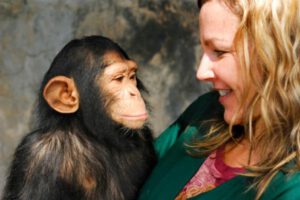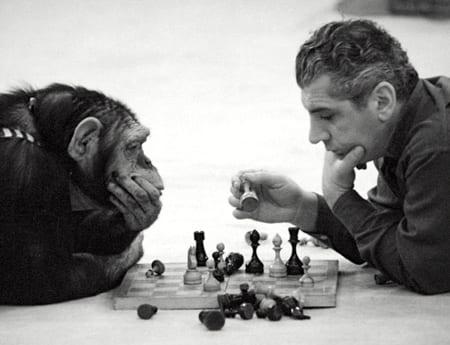
We may be another step closer to discovering what makes us human.
A new study published online this week in Genome Research has pinpointed three genes in humans that may genetically differentiate us from chimps and other primates.
Shared DNA
Genetically we are very similar to chimps, so most of the differences researchers have observed to date regard physical appearance and behaviors.
The new study found several genes that were once silent and nonfunctional in our primate ancestors. They seem to have awakened around the time that humans formed a new evolutionary branch.
Researchers at the University of Dublin compared sections of the human genome with those of chimps and other primates. They found active genes that are absent from the chimp genome.
Human Genes
They found three human genes, CLLU1, C22orf45 and DNAHI0OS, that were present but inactive in non-human primates.
At the location of each of the three human genes, a disabling sequence of DNA was found in the genomes of the chimp, macaque, gorilla, gibbon and partially in the orangutan.
The study suggests that the awakened human genes shed their disabling components. But these awakened genes gained “enabling” sequences that helped them do the work of forming proteins in the body.
Awakened Genes
Previous research found that genes arising from inactive DNA were present in flies and yeast. The study suggests there may be a total of 18 awakened genes in humans. Yet researchers were limited to analyzing only a part of the 24,000-gene human genome.
The functions of these novel genes are not yet known. However, it is tempting to infer that these genes, specific to humans, are responsible for the attributes that differentiate us from other primates.




